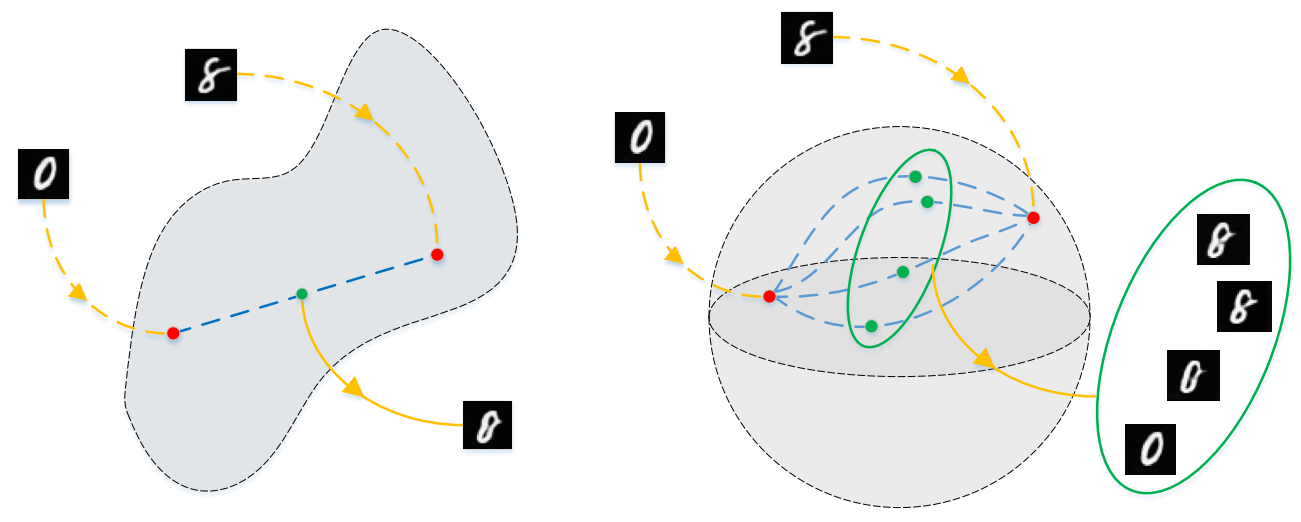Code for Improving Representation Learning in Autoencoders via Multidimensional Interpolation and Dual Regularizations, which is accepted by International Joint Conference of Artificial Intelligence (IJCAI) 2019.
 MIDR-AE (right) introduces Multidimensional Interpolation and Dual Regularizations to improve latent representations in autoencoders.
MIDR-AE (right) introduces Multidimensional Interpolation and Dual Regularizations to improve latent representations in autoencoders.
Before running MIDR-AE, you need python==3.5.6 and the following python packages:
- cudnn==7.1.2
- numpy==1.15.2
- scipy==1.1.0
- tensorflow==1.8.0
For your ease, my conda environment is exported as file. You can easily restore the environment by typing command:
conda env create -f environment.yaml
It would take you about 30 minutes to download all necessary python packages.
Specify the directory for saving your datasets by:
export AE_DATA=./Data
All the downloaded dataset would be save in './Data'.
Before running the model, you should prepare dataset by executing:
python create_datasets.py
It would take a long time. So I also upload all the necessary files to my Baidu Cloud, please download all the *.tfrecord and save in './Data'.
There are multiple base models:
- Baseline
- Denoising
- Dropout
- Variational AE
- VQVAE
- Adversarial AE
- ACAI
Our proposed model are listed as follows:
- MI-AE
- LR-AE
- DR-ACAI
- MIDR-AE
Find *.sh in runs directory, we have all optimal hyperparameters for various models specified there. Just run:
bash runs/miae.sh
bash runs/lrae.sh
bash runs/dr_acai.sh
bash runs/midrae.sh
You should be able to achieve the reported accuracy of single-layer classifier and clustering resuls:
You can also check the model checkpoints and intermediate images in directory './TRAIN'.
Some of the results of MIDR-AE are shown are follows:
Finally, if you have any questions about the code, please feel free to email: csliguanyue007@mail.scut.edu.cn


